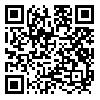Volume 5, Issue 1 (8-2024)
پژوهش های مابعدالطبیعی 2024, 5(1): 213-231 |
Back to browse issues page
Download citation:
BibTeX | RIS | EndNote | Medlars | ProCite | Reference Manager | RefWorks
Send citation to:



BibTeX | RIS | EndNote | Medlars | ProCite | Reference Manager | RefWorks
Send citation to:
Safari Ganharani N, Raayat Jahromi M, Heidari M H, Baqershahi A. Criticism of Thomas Nagel's view on the meaning of life. پژوهش های مابعدالطبیعی 2024; 5 (1) :213-231
URL: http://mi.khu.ac.ir/article-1-297-en.html
URL: http://mi.khu.ac.ir/article-1-297-en.html
1- Imam Khomeini International University
2- Department of philosophy, Imam Khomeini International University ,raayatjahromi@hum.ikiu.ac.ir
3- Department of philosophy, Imam Khomeini International University
4- Department of philosophy, Imam Khomeini International University, Qazvin, Iran
2- Department of philosophy, Imam Khomeini International University ,
3- Department of philosophy, Imam Khomeini International University
4- Department of philosophy, Imam Khomeini International University, Qazvin, Iran
Abstract: (753 Views)
According to Nagel, from a subjective (internal) point of view, life is unavoidably unquestionable and serious, and from an objective (external) point of view, it is doubtful, unjustifiable, arbitrary, random and non-serious. The futility of life does not mean that life has no value and importance, no role or function is envisioned for it, or it lacks any purpose and goal, but it means that, incidentally, from a mental point of view, life is the most valuable and It is the most important thing there is, but the main issue is that whatever meaning we discover or fabricate for life, that meaning is, from an eternal perspective, arbitrary. Therefore, life is futile, not because, from the perspective of a distant future, it is insignificant or compared to the universe, it is nothing more than a particle and a tail, and it is not related to death, it is destroyed, and it is not eternal. Rather, even if man fills the entire space and time and has eternal life and continues to live eternally next to God as the ultimate goal, the problem remains unsolved, that is, man can Look at your own life and God's life from the perspective of eternity. The present article aims to criticize the key components of Nagel's point of view, i.e., the inevitability of doubt, the inexcusability of life, the irrefutability of the above argument, and the preference of an objective point of view over a subjective point of view
Type of Study: Original Article |
Subject:
Philosophy
References
1. Cottingham, J., (2003), on the meaning of Life, London: Routledge [DOI:10.4324/9780203164242]
2. Feinberg, J., (2018). Absurd Self- Fulfillment. Oxford University Press
3. Luper, S., (1992). The absurdity of life. Trinity University.
4. O'Connor, S., (2007). Does Anything Matter? A thesis submitted to The University of Birmingham For the degree of Doctor of Philosophy.
5. Nagel, Thomas. )1971(. "The absurd." The Journal of Philosophy 68(20): 716-727. [DOI:10.2307/2024942]
6. Nagel, T., (1986). The View from Nowhere. Oxford University Press
7. Nagel, T., (1987). What does it All Mean? A Very Short Introduction to Philosophy. Oxford University Press
8. Prichard, P., (2010) Absurdity, Angst and the Meaning of life. University of Edinburgh [DOI:10.5840/monist20109311]
9. Sartre, J.P., (1956(, Being and Nothingness, trans. H. E. Barens, New York.
10. Veit, Walter, (2018(, Existential Nihilism: The Only Really Serious Philosophical Problem: Journal of Camus Studies.
Send email to the article author
| Rights and permissions | |
 |
This work is licensed under a Creative Commons Attribution-NonCommercial 4.0 International License. |








